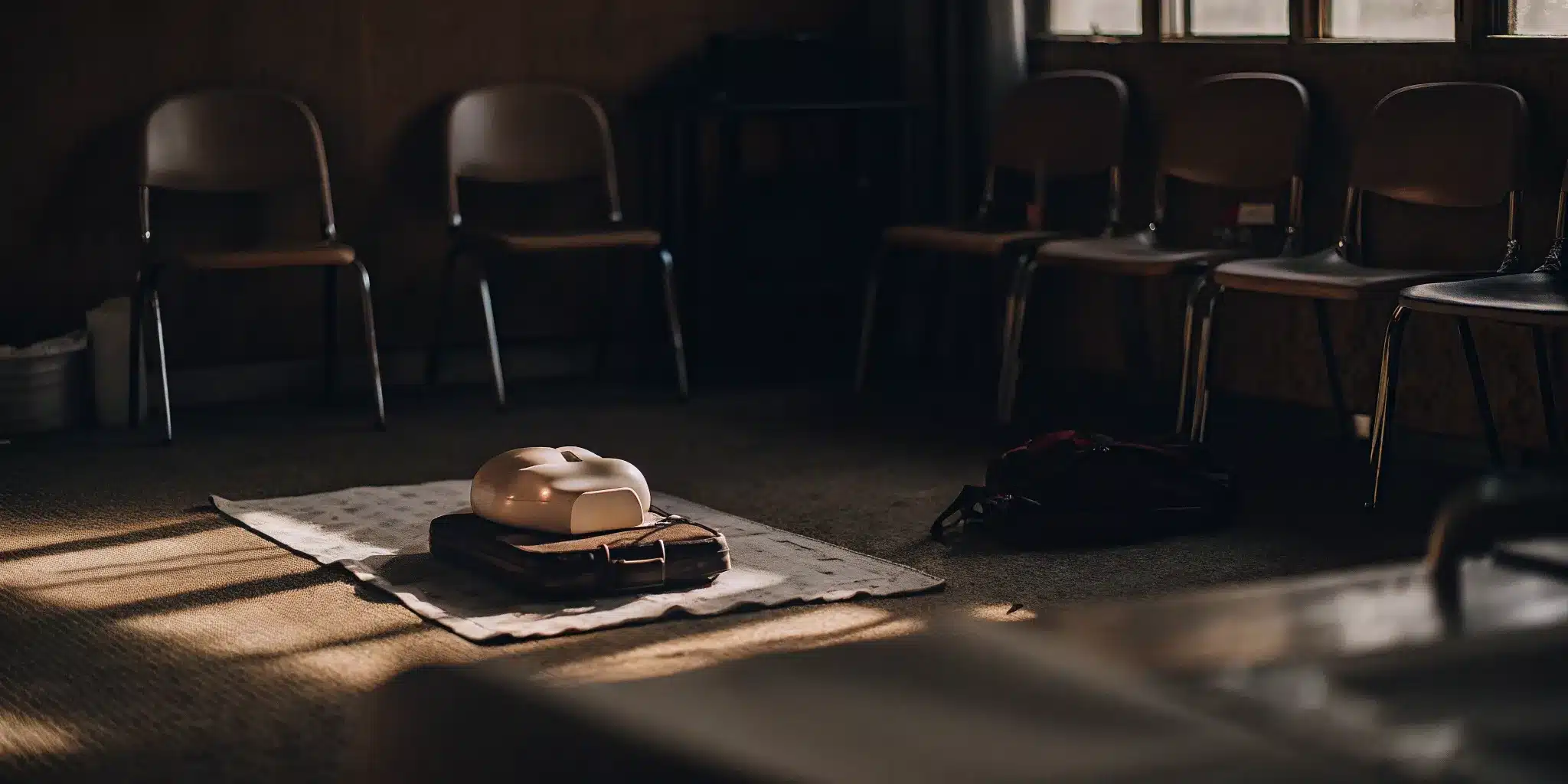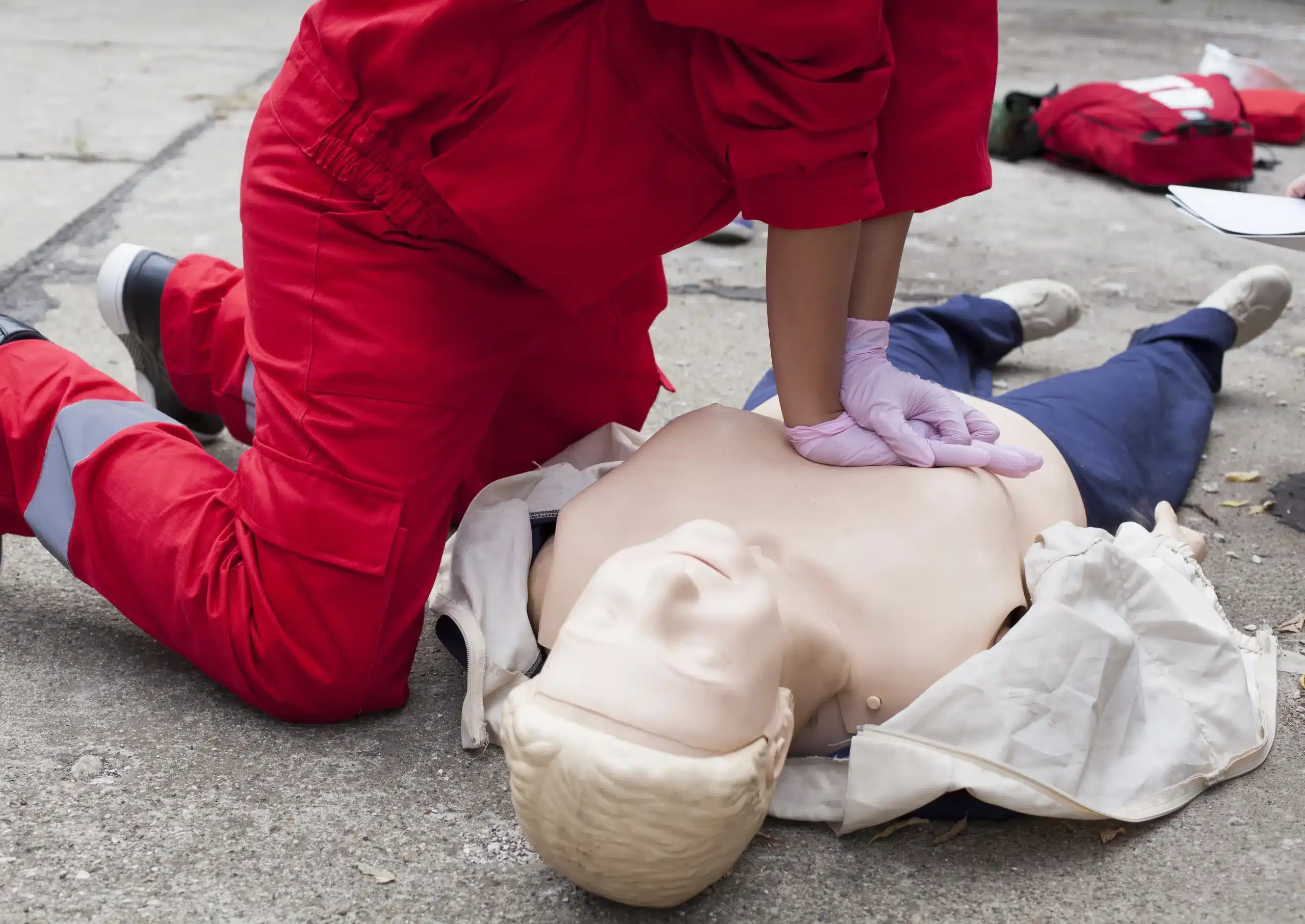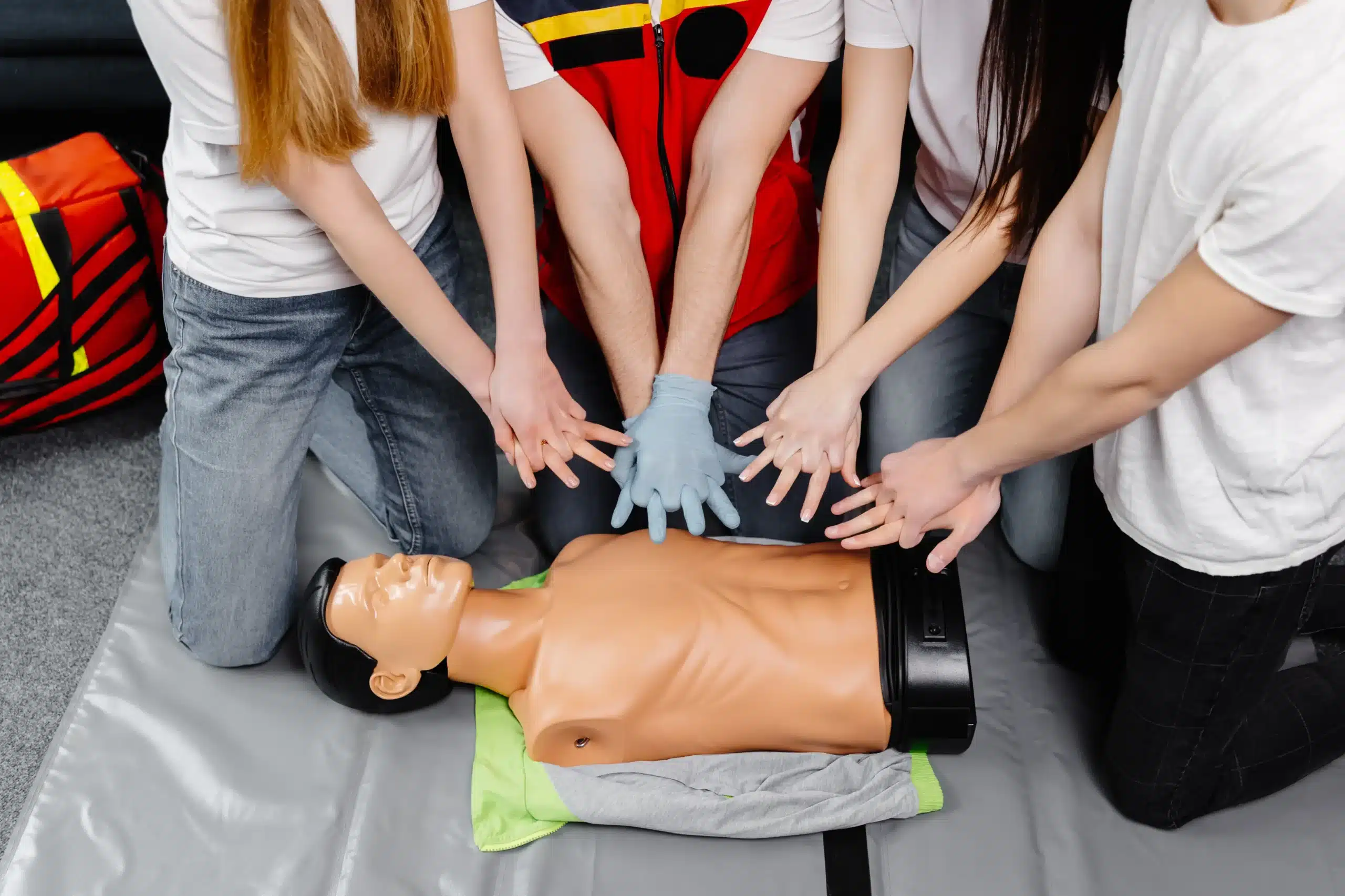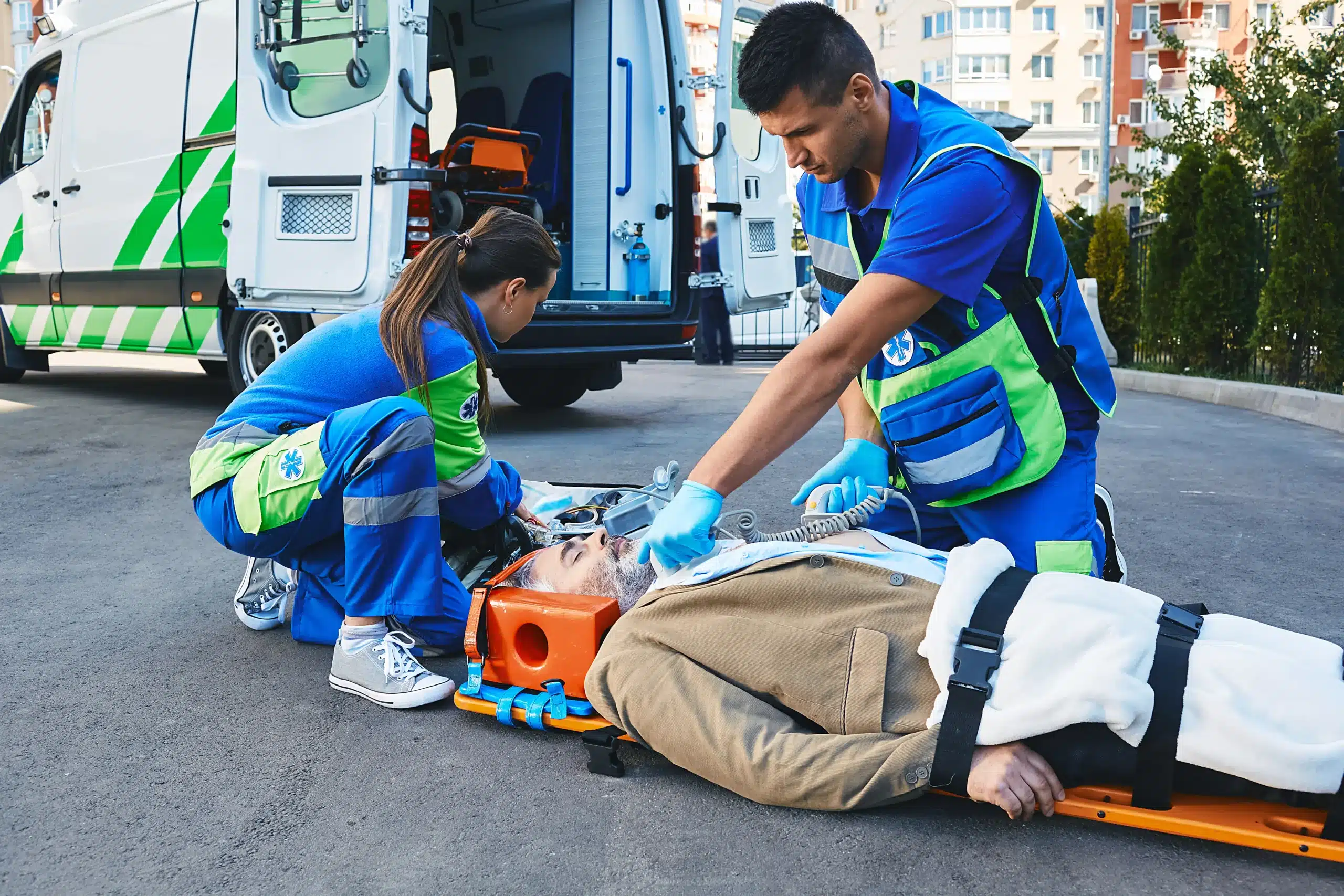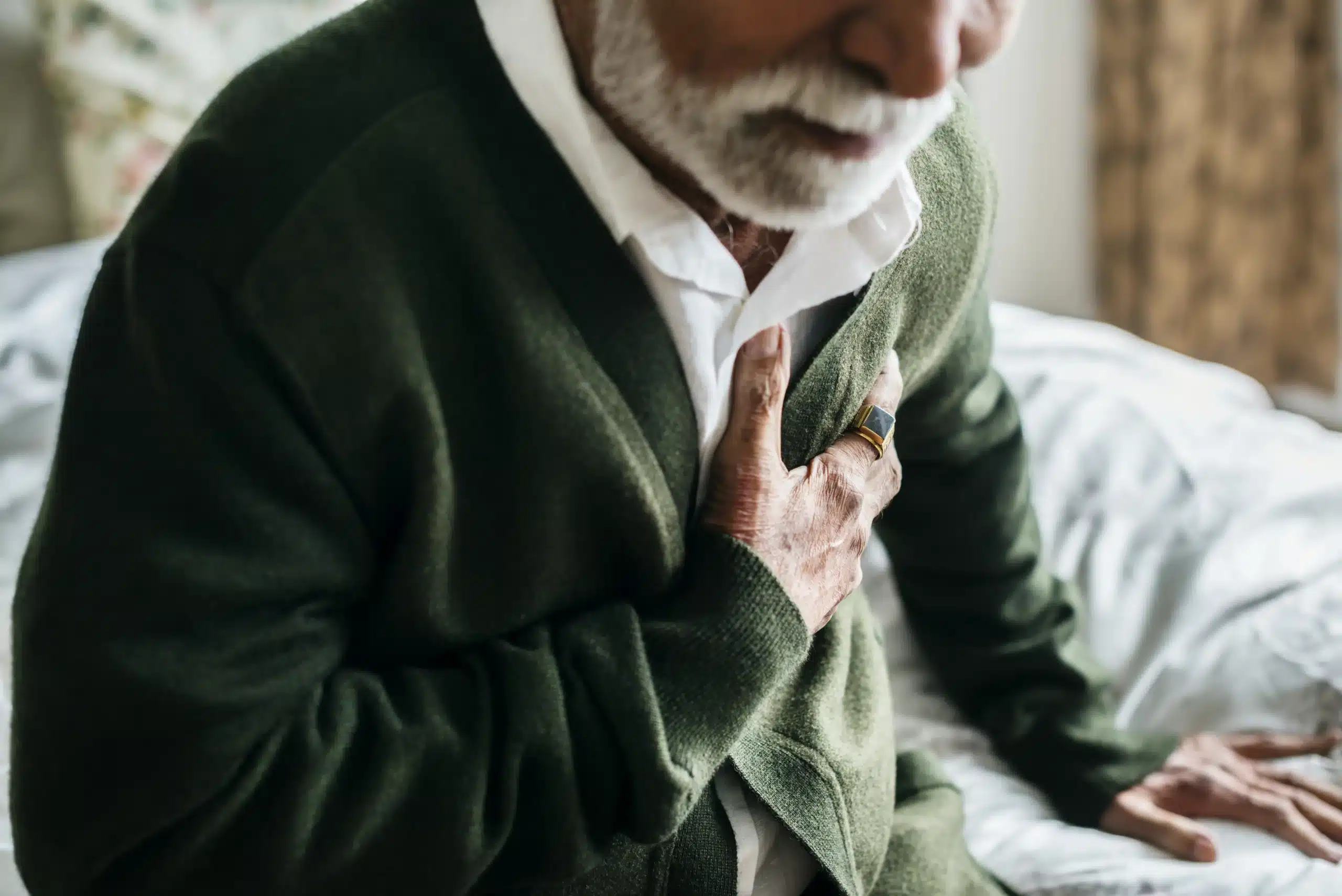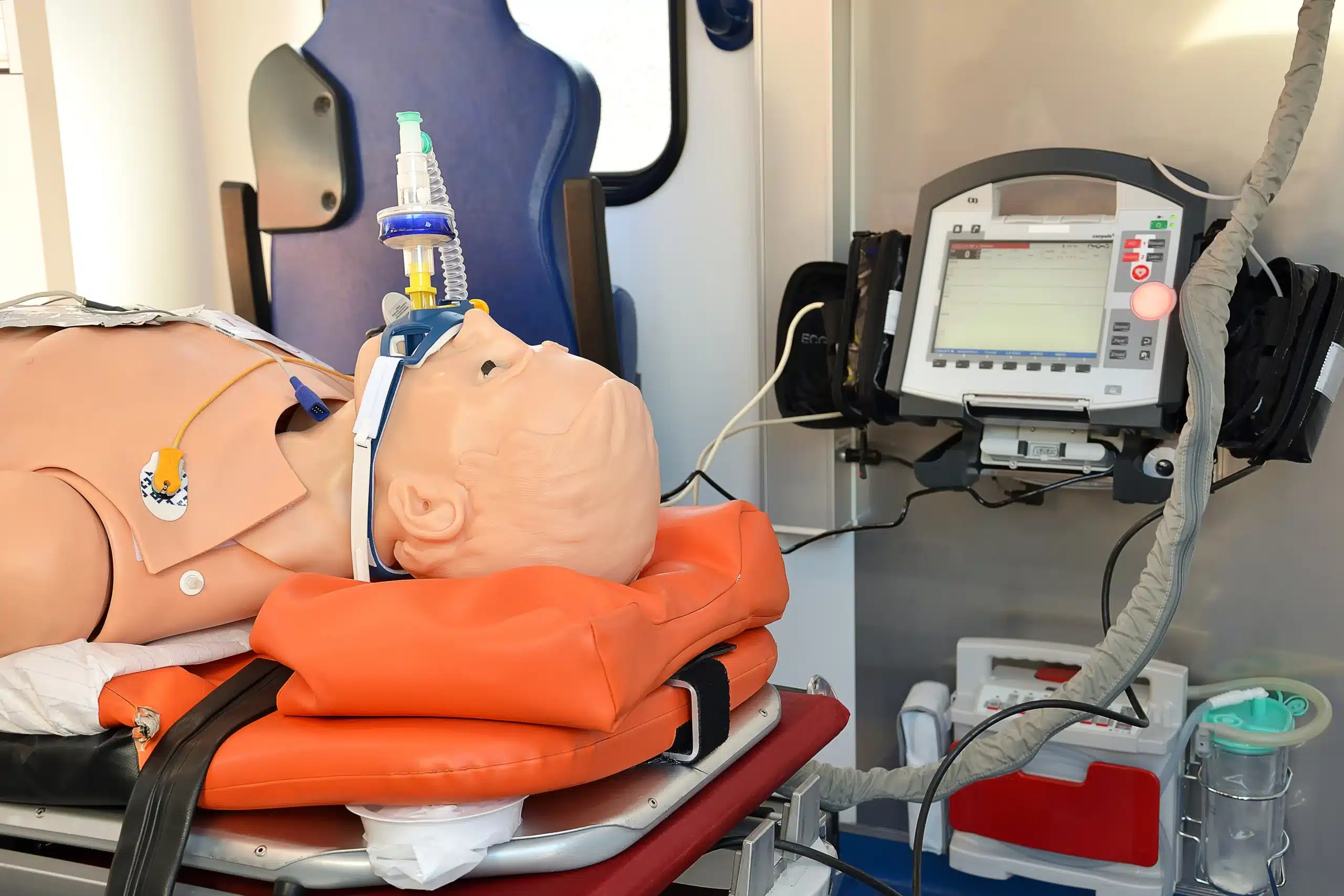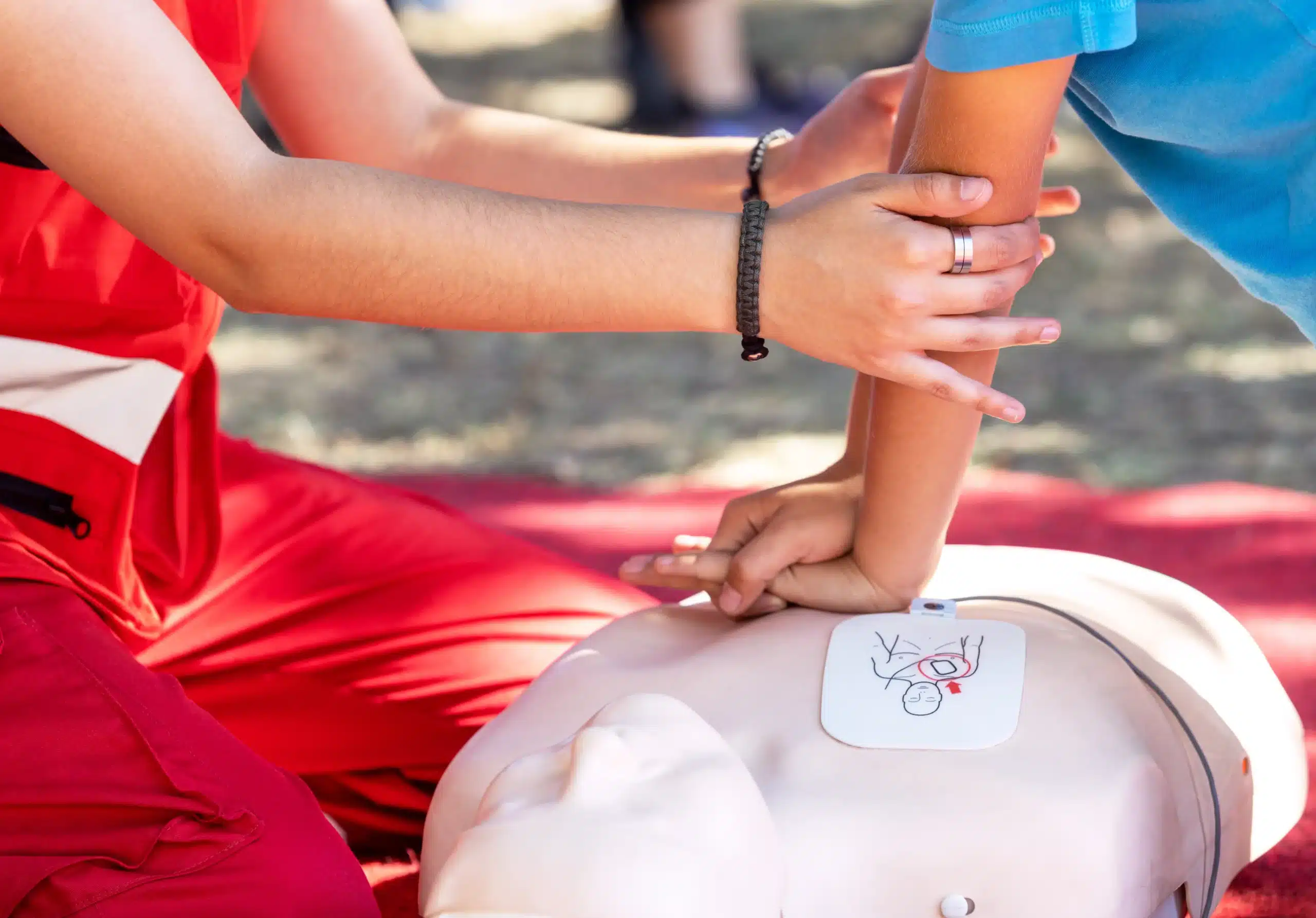Preparedness is key when it comes to medical emergencies. CPR training equips you with the skills and confidence to respond effectively in critical situations, potentially making a significant impact on someone’s life. This guide focuses on CPR classes in Stockton, providing a comprehensive overview of available training options, certification requirements, and important considerations for choosing the right course. Whether you’re a parent, a healthcare provider, or simply someone who wants to be prepared, understanding the landscape of CPR classes in Stockton is essential. We’ll cover everything from basic CPR and first aid to advanced certifications like BLS, ACLS, and PALS, ensuring you have the information you need to make an informed decision.
Key Takeaways
- CPR training is accessible and empowers you to save lives: Find a Stockton CPR class that fits your needs, whether you’re a healthcare provider, parent, or community member. Explore options ranging from basic to advanced certifications.
- Stockton offers various CPR training resources: Discover classes through Tracy CPR Classes, the American Red Cross, local fire departments, and hospitals. Research providers and compare their offerings.
- Maintain your CPR skills to stay prepared: Renew your certification every two years and consider refresher courses to stay current with the latest guidelines and best practices.
What is CPR and Why is it Important in Stockton?
Cardiopulmonary Resuscitation (CPR) is a lifesaving technique used when someone’s breathing or heartbeat has stopped. It combines chest compressions and rescue breaths to keep blood and oxygen flowing to vital organs until professional help arrives. The American Heart Association stresses how crucial CPR is for responding to cardiac arrest, significantly increasing the chances of survival.
In Stockton, understanding CPR is incredibly important. With hundreds of thousands of cardiac arrests happening across the US each year, knowing CPR can make a real difference. The Red Cross points out that most out-of-hospital cardiac arrests are fatal without immediate CPR, highlighting the critical role bystanders can play. Being prepared strengthens our community’s safety net. CPR training gives people the skills to respond effectively, making it a valuable skill for everyone in Stockton to consider. Learning CPR empowers you to act confidently and potentially save a life.
CPR Classes in Stockton: What’s Available?
Finding the right CPR class can feel overwhelming, but Stockton offers a variety of options to meet different needs. Whether you’re a healthcare professional, a parent, or simply someone who wants to be prepared, there’s a course for you.
Adult CPR
Adult CPR classes in Stockton cover the essentials needed to respond to cardiac arrest and choking in adults. Providers like the American Red Cross offer comprehensive CPR training emphasizing hands-on practice and real-life scenarios. These courses will prepare you to confidently administer CPR.
Pediatric CPR & First Aid
For parents, caregivers, and anyone working with children, Pediatric CPR and First Aid training is invaluable. Companies like Professional CPR in Stockton provide specialized pediatric training focused on the unique needs of infants and children. You’ll learn how to respond effectively to choking, cardiac arrest, and other pediatric emergencies.
AED Training
Learning to use an Automated External Defibrillator (AED) is a crucial part of emergency preparedness. AED training is often included in CPR courses, teaching you how to operate these devices and integrate their use with CPR techniques.
BLS for Healthcare Providers
Healthcare providers in Stockton can find American Heart Association-certified Basic Life Support (BLS) courses. These classes are designed specifically for medical professionals, covering high-quality CPR, AED use, and effective team dynamics during resuscitation.
ACLS & PALS Courses
Advanced Cardiovascular Life Support (ACLS) and Pediatric Advanced Life Support (PALS) certifications are available in Stockton for healthcare providers who manage complex cardiac and pediatric emergencies. These advanced courses build upon foundational knowledge and provide specialized training for critical situations. You can find these courses offered by various providers, including Tracy CPR Classes.
Where to Find CPR Classes in Stockton
Finding the right CPR class can feel overwhelming, but several reputable organizations and institutions offer training in and around Stockton. Here’s a breakdown to help you in your search:
Tracy CPR Classes
While located in nearby Tracy, Tracy CPR Classes offers American Heart Association (AHA) certified courses convenient for Stockton residents. Their courses include BLS, ACLS, PALS, and more, making them a suitable option for both healthcare providers and the general public. This woman-owned business emphasizes high-quality instruction and excellent customer service. For additional options, check their website for a Northern California CPR directory.
American Red Cross
The American Red Cross is a well-known provider of CPR and AED training. They offer various learning formats, including in-person classes in Stockton, online courses, and blended learning (a combination of online and in-person instruction). Their in-person classes meet OSHA workplace safety standards and provide a two-year certification.
Professional CPR
Professional CPR offers CPR, First Aid, BLS, and AED training in various locations, including Stockton. With over 20 years of experience, they have a strong track record. While their website doesn’t currently list scheduled classes in Stockton, check their online calendar for updates or contact them about future training.
Local Fire Departments & EMS
Your local fire department or EMS agency often provides CPR training. These classes, typically taught by experienced first responders, offer practical, hands-on learning. Contact the Stockton Fire Department or San Joaquin County EMS for information on upcoming CPR training.
Hospitals & Medical Centers
Hospitals and medical centers in Stockton, such as St. Joseph’s Medical Center and Dameron Hospital, frequently offer CPR classes. These classes cater to both healthcare professionals and the general public. Check their websites or contact their education departments for class schedules and registration details.
What Happens in a Stockton CPR Class?
Curious about what to expect in a Stockton CPR class? Here’s a glimpse into a typical class, covering everything from format and content to hands-on training and certification.
Class Length & Format
Stockton CPR classes offer flexibility to fit your schedule. You can choose from in-person, online, or blended learning formats. In-person classes provide a structured environment with face-to-face instruction, while online courses offer self-paced learning accessible from anywhere with an internet connection. Blended learning combines online coursework with in-person skills practice. Depending on the format and specific course type, such as CPR/AED or First Aid, classes typically last between two and four hours. For more details on available formats, check out the CPR class options from the American Red Cross.
Course Content & Curriculum
Stockton CPR classes cover essential life-saving techniques. The curriculum typically includes CPR for adults, children, and infants, teaching you how to respond to cardiac arrest and choking emergencies. You’ll also learn about using an AED (Automated External Defibrillator). Some courses incorporate First Aid training, equipping you with the skills to manage injuries and other medical emergencies. Providers like Professional CPR offer a range of courses covering these essential topics.
Hands-on Practice
In-person Stockton CPR classes prioritize hands-on practice. You’ll work with mannequins in a controlled setting, simulating real-life scenarios. This practical experience builds your confidence and competence in performing CPR and using an AED, ensuring you can effectively apply your skills under pressure. The Red Cross highlights the importance of this hands-on training in their CPR courses.
Certification
After successfully completing a Stockton CPR class, you’ll receive a certification valid for two years. This certification demonstrates your CPR proficiency and often meets workplace safety standards, including OSHA requirements. Some providers, like Professional CPR, offer expedited certification processing if you register and pay online. This allows you to quickly access your certification after completing the course.
CPR Class Costs in Stockton
Knowing the price range for CPR classes helps you budget and choose the right course. Let’s break down what you can expect to pay in Stockton.
Typical Prices
CPR classes in Stockton typically cost between $40 and $60 per person. This covers basic CPR and first-aid training. For healthcare providers who need more advanced training like Basic Life Support (BLS), the cost is around $60 to $80. These prices generally make training accessible, which is important for such a vital skill.
Factors Affecting Cost
Several things can influence the final price of your CPR certification. The type of certification, the course length, and the training center’s reputation all play a role. For example, a specialized course like BLS for Healthcare Providers will likely have a different price than a basic community CPR class. Even with these variables, CPR certification remains a worthwhile investment.
Discounts & Offers
If you’re looking to get certified with a group, many CPR training providers in Stockton offer discounts. Tracy CPR Classes is one example. This can be a great option for businesses, community groups, or even a group of friends. You’ll save money and learn together, making the experience more rewarding.
Investing in Life-Saving Skills
Learning CPR and first aid is more than just a checklist item; it’s an investment in yourself and your community. These skills empower you to act in emergencies. Explore the CPR and first-aid certification courses available and find one that meets your needs. You’ll gain valuable skills and contribute to a safer Stockton.
Choosing the Right CPR Class in Stockton
Finding the right CPR class can feel overwhelming with so many options. But by focusing on a few key factors, you can easily pinpoint the perfect course for your needs.
Define Your Needs & Goals
Before you start searching, ask yourself why you want CPR training. Are you a healthcare professional needing to maintain your BLS certification? A parent wanting to learn infant CPR? Or are you fulfilling a workplace requirement? Understanding your goals will help you choose the right class. For example, healthcare providers often require certifications like ACLS or PALS, while a community member might focus on basic CPR and first aid.
Check Instructor Qualifications
Quality instruction is crucial for effective CPR training. Look for classes led by certified instructors from reputable organizations like the American Heart Association. Experienced instructors can provide better guidance and ensure you learn the proper techniques. Don’t hesitate to ask about an instructor’s background and certifications before signing up. Tracy CPR Classes, for example, emphasizes its commitment to high-quality training and certified instructors.
Evaluate Learning Options (In-Person, Online, Blended)
CPR classes are offered in various formats. In-person classes provide hands-on practice and direct interaction with instructors. Online courses offer flexibility and convenience, allowing you to learn at your own pace. Blended learning combines online modules with in-person skills sessions, offering a balance of both. Consider your learning style and schedule when choosing a format. If you thrive in interactive settings, an in-person class might be best. If you need more flexibility, explore online or blended options.
Consider Schedules & Locations
Convenience matters, especially with busy schedules. Look for classes offered at times and locations that work for you. Check if classes are available on weekends, evenings, or weekdays. Also, consider the proximity of the training center to your home or work. Tracy CPR Classes offers courses throughout the week to accommodate various schedules, serving Tracy, Stockton, and Lodi. Think about what makes attending a class easiest for you to maximize your chances of completing the training.
Registering for a CPR Class
Once you’ve chosen the right CPR class, signing up is usually straightforward. Here’s a breakdown of common registration methods:
Register Online
Many organizations offer the convenience of online registration. This allows you to browse available dates, select a time that works for you, and complete the process from home. Tracy CPR Classes, for example, provides a user-friendly online registration system where you can quickly secure your spot. Check the websites of training providers in your area or visit our Northern CA CPR Directory for links to registration portals.
Sign Up In-Person
Some people prefer a more personal approach. If that’s you, many providers also allow in-person registration. This gives you a chance to visit the training center, ask questions, and get a feel for the learning environment before committing to a class. Contact the provider directly to inquire about in-person registration options.
Required Documents & Prerequisites
Most CPR classes don’t require extensive documentation. However, certain specialized courses, such as those for becoming a certified CPR instructor, may have prerequisites like prior certifications or training. It’s always a good idea to check with the specific training center or organization offering the CPR class to see if there are any specific requirements. For example, if you’re interested in the RQI program at Tracy CPR Classes, confirming prerequisites beforehand will ensure a smooth registration process. For those interested in childcare, checking requirements for the EMSA Child Care Health & Safety program is also recommended.
Payment Methods
CPR training organizations typically accept various payment methods. These often include online payment options like credit or debit cards, as well as in-person payment methods such as cash or check. When registering, confirm the accepted payment methods to avoid any surprises. Many providers, like Tracy CPR Classes, streamline the process by allowing you to pay online during registration.
Keeping Your CPR Certification Current
Knowing how to perform CPR is a powerful skill, but it’s not something you learn once and forget. Staying current with your CPR certification ensures you’re always prepared and confident to act in an emergency. This section covers renewals, continuing education, and staying informed about the latest CPR guidelines.
Renewal Requirements
CPR certifications generally expire after two years. Medical guidelines and best practices can change, so regular renewal ensures you’re using the most effective techniques. Check your certification card for the expiration date. The American Heart Association and American Red Cross offer renewal courses. Tracy CPR Classes also provides renewal courses to help you maintain your certification.
Continuing Education
Even if your certification isn’t up for renewal yet, continuing education keeps your skills sharp. Short refresher courses or practice sessions reinforce your knowledge and build confidence. Regular practice helps you react quickly and effectively in stressful situations. Check with local training centers, like Tracy CPR Classes, for refresher courses.
Stay Up-to-Date
CPR guidelines evolve with the medical field. Staying informed about the latest recommendations ensures you’re providing the best possible care. Subscribing to newsletters from organizations like the American Heart Association or the Red Cross keeps you informed. Following reputable medical resources also helps. Tracy CPR Classes aligns their curriculum with the latest AHA guidelines, ensuring you receive current training. Staying informed shows your commitment to high-quality CPR.
CPR Training Myths
Let’s clear up some common misconceptions about CPR training. These myths can prevent people from learning this life-saving skill, so let’s debunk them:
“Only Professionals Can Do CPR”
One of the biggest myths is that only doctors and nurses can perform CPR. This simply isn’t true. Anyone can learn CPR—from teenagers to grandparents. In fact, the American Heart Association encourages everyone to learn this skill, as bystanders are often the first on the scene of a medical emergency. Your actions before professional help arrives can dramatically increase someone’s chance of survival. Learn more about becoming CPR certified.
“CPR is the Same for Everyone”
Another misconception is that the same CPR technique works for everyone. However, CPR for adults differs from CPR for children and infants due to differences in physiology and bone structure. It’s crucial to learn the correct techniques for each age group to provide effective assistance. Tracy CPR Classes offers courses covering CPR for all ages, ensuring you’re prepared for any situation.
“You Can Get Sued for Doing CPR”
Many hesitate to perform CPR due to fear of legal action. Good Samaritan laws exist to protect those who offer help in emergencies. These laws shield you from liability as long as you act reasonably and within the scope of your training. Focus on providing assistance—your willingness to help can make all the difference. Learn more about Good Samaritan Laws and CPR.
“CPR Always Works”
While CPR is a powerful tool, it’s important to have realistic expectations. CPR doesn’t always restart the heart. Its primary purpose is to circulate oxygenated blood to the brain and vital organs, buying time until professional medical help arrives. The effectiveness of CPR depends on several factors, including the underlying cause of the cardiac arrest and how quickly CPR begins. Even if the heart doesn’t restart immediately, CPR can still significantly improve the outcome. For more information on the realities of CPR, explore resources on CPR training.
CPR Training & Stockton’s Safety
CPR training is a cornerstone of a safe and prepared community. It empowers individuals to respond effectively during emergencies, creating a ripple effect that benefits everyone. Let’s explore how CPR training contributes to the safety of families, strengthens public health initiatives, and makes Stockton a safer place to live.
Benefits for Families & Childcare
Knowing CPR and first aid provides immense peace of mind for families and childcare providers. Accidents happen, especially with children, and having the skills to respond quickly can make all the difference. Imagine a child choking on a small toy or experiencing a near-drowning incident at a family gathering. A parent or caregiver trained in CPR can immediately begin life-saving procedures while waiting for professional medical help. This quick action can significantly improve the outcome of these emergencies. For childcare providers, CPR certification is often a requirement and demonstrates a commitment to the safety and well-being of the children in their care.
CPR & Public Health
CPR training is a vital component of public health initiatives. The American Red Cross emphasizes the importance of emergency preparedness, and CPR plays a crucial role in that preparedness. Cardiac arrest can happen anytime, anywhere, and bystanders trained in CPR can provide immediate support before paramedics arrive. Learning CPR can significantly increase the chances of survival for cardiac arrest victims. It empowers individuals to take action and potentially save a life, contributing to a healthier and safer community.
A Safer Stockton Through Training
Widespread CPR training contributes to a safer Stockton for everyone. Group CPR training offers a convenient and cost-effective way for community members to learn these life-saving skills together. When more people are trained in CPR, the likelihood of a bystander being able to assist during a medical emergency increases dramatically. This creates a network of prepared individuals ready to respond, ultimately making Stockton a more resilient and safer community. CPR significantly increases survival rates for cardiac arrest victims, and resources like this article debunking common CPR myths emphasize the effectiveness of this technique.
Related Articles
- Why CPR is Important in Healthcare – Tracy CPR Classes
- Northern CA CPR Directory – Tracy CPR Classes
- Debunking Common CPR Myths
- CPR, BLS, ACLS, PALS, & First-aid Classes in Tracy, CA
- Importance of Workplace CPR & First-Aid Training – Tracy CPR Classes
Frequently Asked Questions
How do I choose between online and in-person CPR classes in Stockton? Think about your learning style and schedule. If you prefer hands-on learning and direct interaction with an instructor, an in-person class is probably a better fit. If you need more flexibility and prefer to learn at your own pace, an online or blended learning option (combining online coursework with in-person skills practice) might be more suitable. Both formats cover the same core material and lead to certification.
What if I’m nervous about performing CPR in a real emergency? It’s completely normal to feel apprehensive. CPR classes are designed to build your confidence through hands-on practice and realistic scenarios. Instructors create a supportive learning environment where you can ask questions and practice your skills without pressure. Remember, any attempt at CPR is better than none. Your willingness to act can significantly improve someone’s chances of survival.
Are there CPR classes specifically designed for parents or caregivers in Stockton? Yes, absolutely. Several organizations offer Pediatric CPR and First Aid classes tailored to the needs of parents, grandparents, babysitters, and anyone working with children. These courses focus on CPR techniques for infants and children, addressing common childhood emergencies like choking and near-drowning.
How much does CPR certification cost in Stockton, and are payment plans available? CPR class prices in Stockton typically range from $40 to $80, depending on the course type and the training provider. Basic CPR and First Aid classes tend to be on the lower end of that range, while specialized courses like BLS for healthcare providers might be slightly higher. Contact the specific training center you’re interested in to inquire about payment plans or group discounts, as some providers offer these options.
Besides the Red Cross, where else can I find reputable CPR training in Stockton? Several reputable organizations offer CPR training in Stockton. Tracy CPR Classes, while located in nearby Tracy, is a convenient option with various courses, including BLS, ACLS, and PALS. Local hospitals and medical centers often hold CPR classes for both healthcare professionals and the public. Additionally, checking with your local fire department or EMS agency is a good idea, as they frequently offer CPR training within the community.
